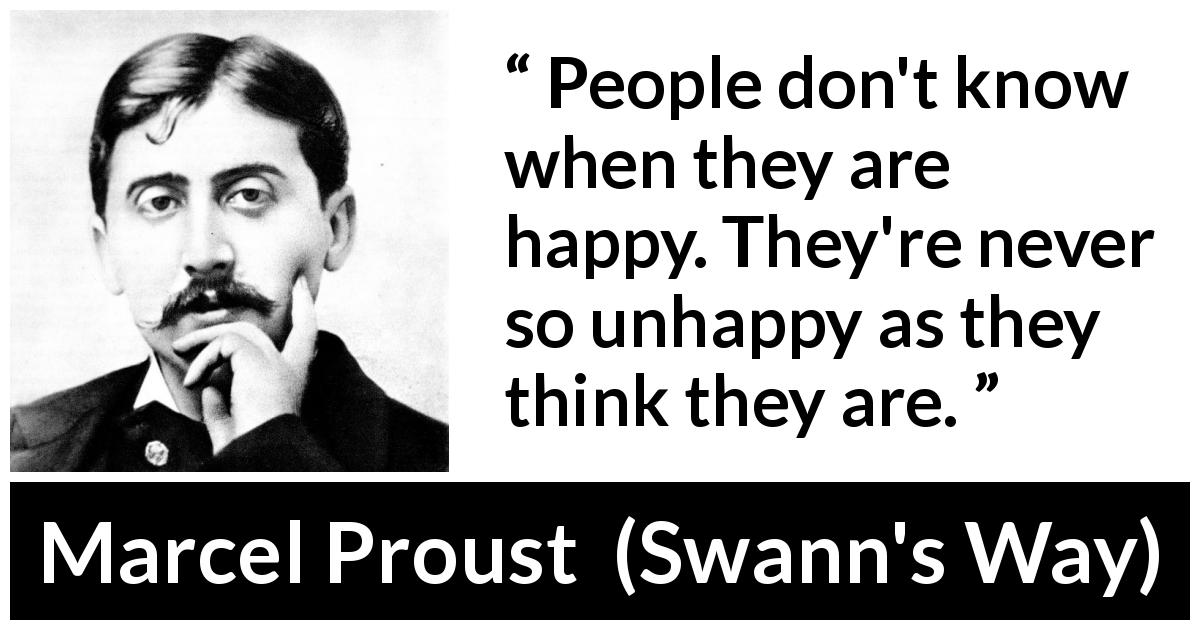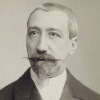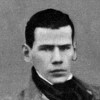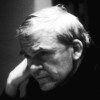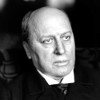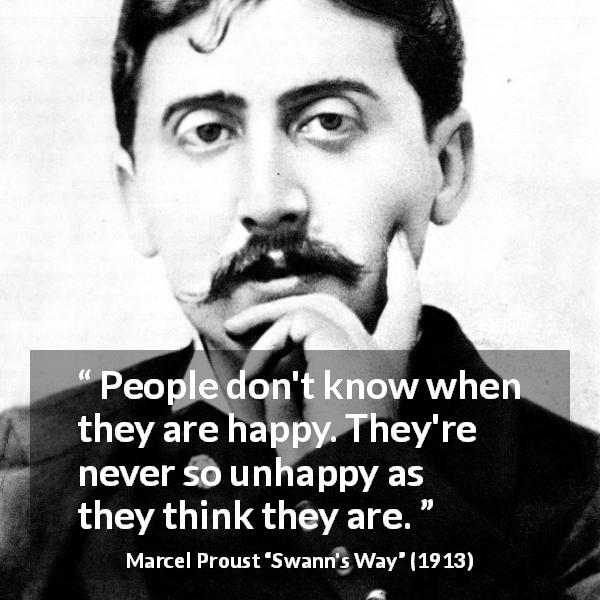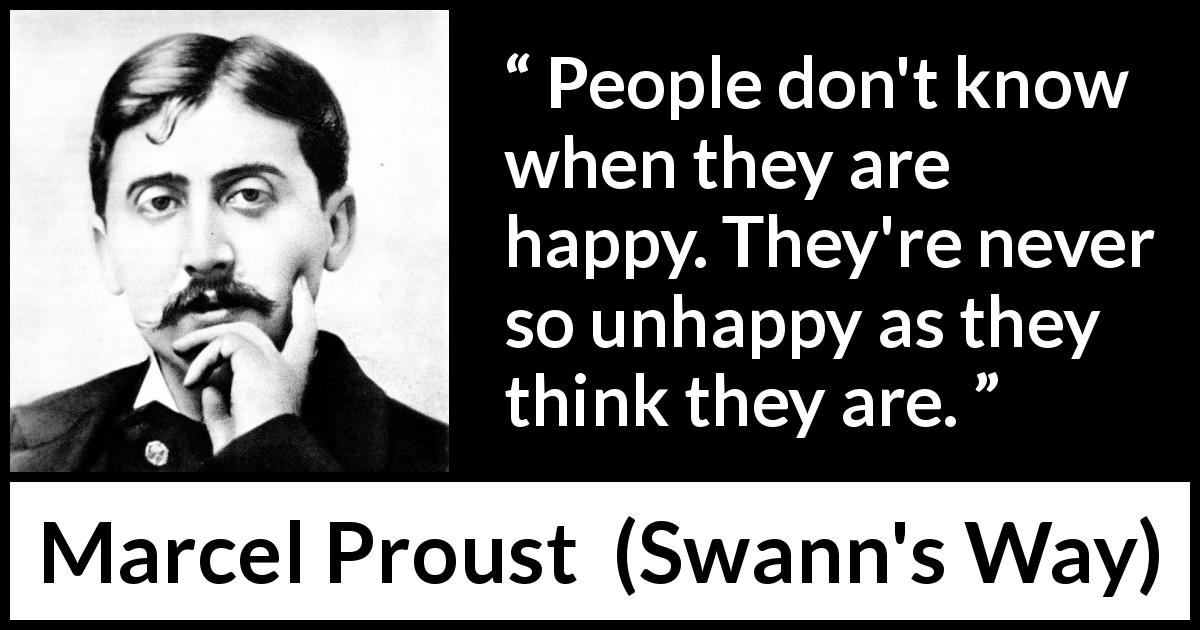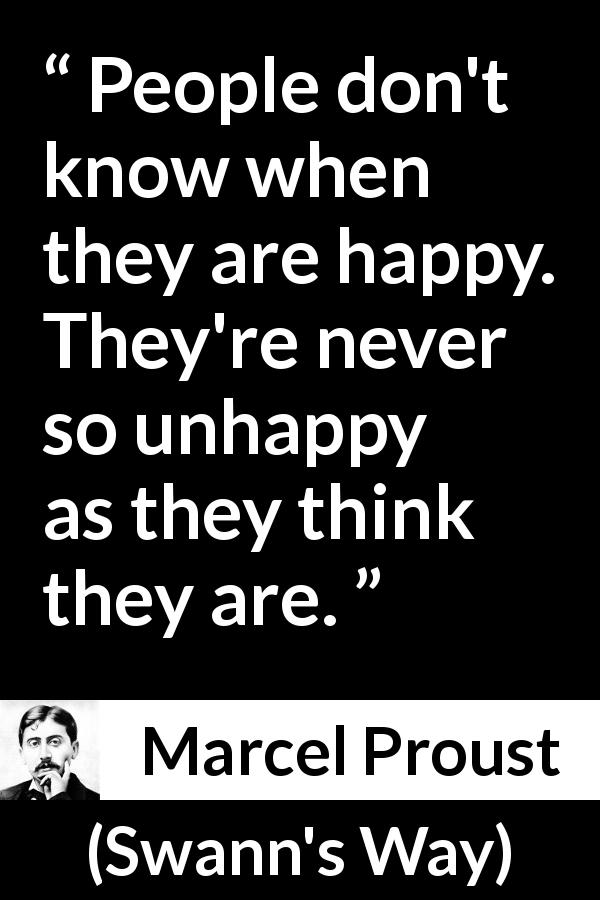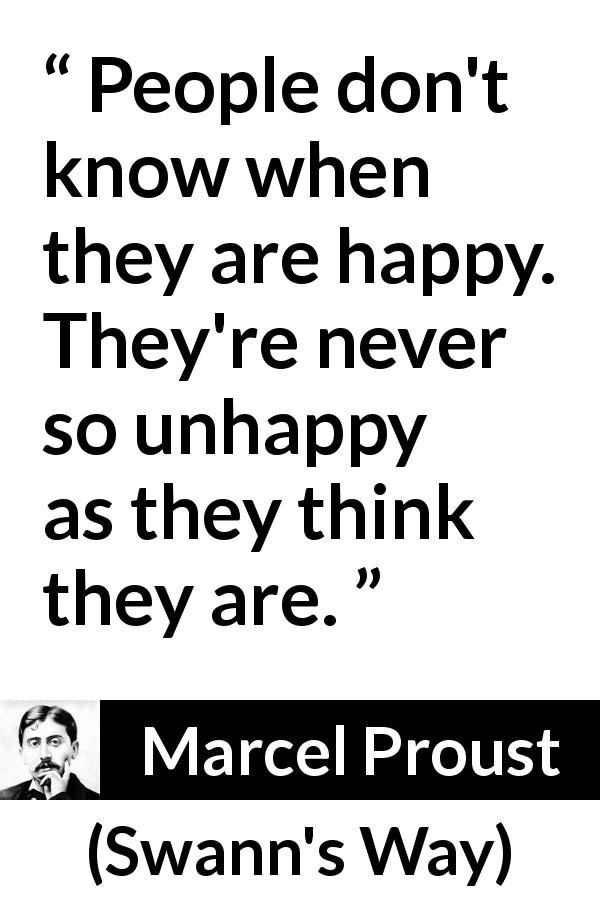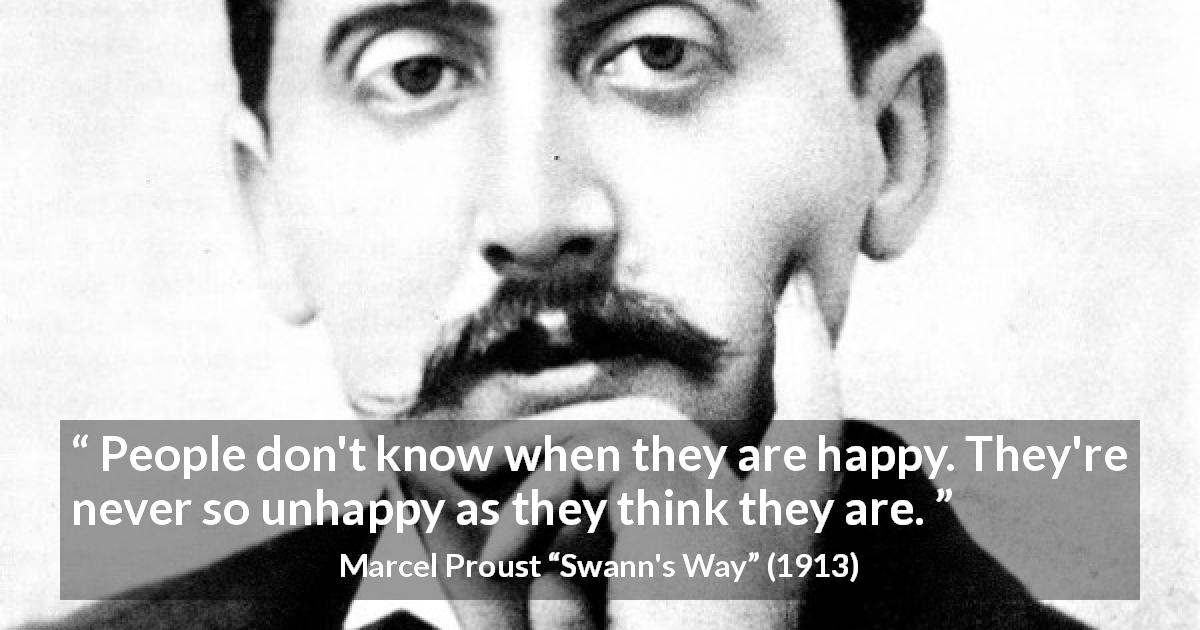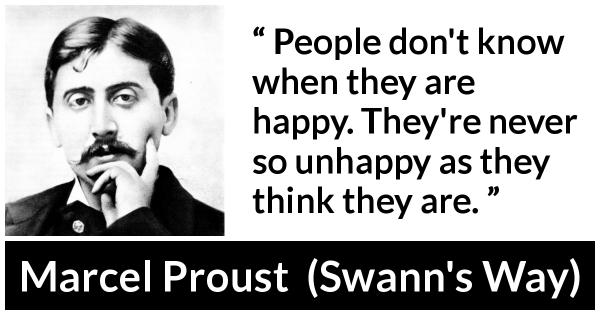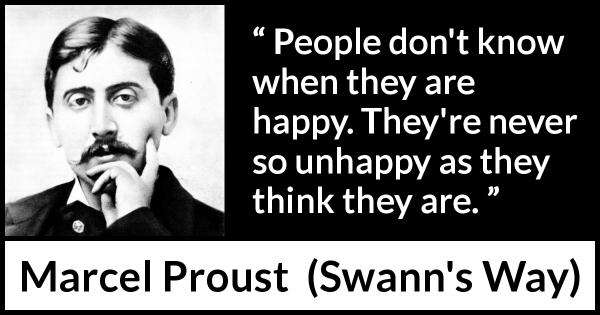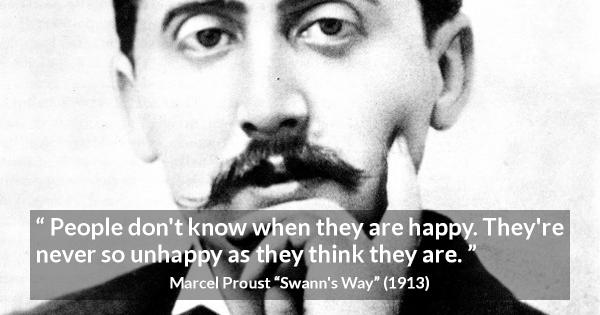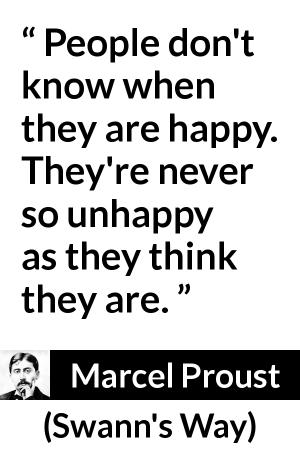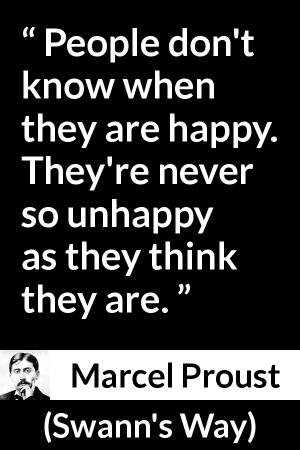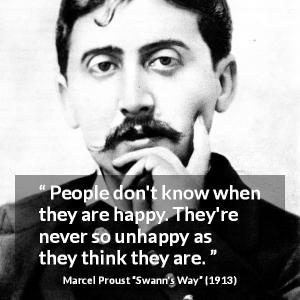“ People don't know when they are happy. They're never so unhappy as they think they are. ”
Marcel Proust, Swann's Way (1913). copy citation
| Author | Marcel Proust |
|---|---|
| Source | Swann's Way |
| Topic | happiness unhappiness |
| Date | 1913 |
| Language | English |
| Reference | |
| Note | Translated by C. K. Scott Moncrieff |
| Weblink | http://www.gutenberg.org/files/7178/7178-h/7178-h.htm |
Context
“One night he dreamed that he was going away for a year; leaning from the window of the train towards a young man on the platform who wept as he bade him farewell, he was seeking to persuade this young man to come away also. The train began to move; he awoke in alarm, and remembered that he was not going away, that he would see Odette that evening, and next day and almost every day. And then, being still deeply moved by his dream, he would thank heaven for those special circumstances which made him independent, thanks to which he could remain in Odette's vicinity, and could even succeed in making her allow him to see her sometimes; and, counting over the list of his advantages: his social position—his fortune, from which she stood too often in need of assistance not to shrink from the prospect of a definite rupture (having even, so people said, an ulterior plan of getting him to marry her)—his friendship with M. de Charlus, which, it must be confessed, had never won him any very great favour from Odette, but which gave him the pleasant feeling that she was always hearing complimentary things said about him by this common friend for whom she had so great an esteem—and even his own intelligence, the whole of which he employed in weaving, every day, a fresh plot which would make his presence, if not agreeable, at any rate necessary to Odette—he thought of what might have happened to him if all these advantages had been lacking, he thought that, if he had been, like so many other men, poor and humble, without resources, forced to undertake any task that might be offered to him, or tied down by parents or by a wife, he might have been obliged to part from Odette, that that dream, the terror of which was still so recent, might well have been true; and he said to himself: "People don't know when they are happy. They're never so unhappy as they think they are." But he reflected that this existence had lasted already for several years, that all that he could now hope for was that it should last for ever, that he would sacrifice his work, his pleasures, his friends, in fact the whole of his life to the daily expectation of a meeting which, when it occurred, would bring him no happiness; and he asked himself whether he was not mistaken, whether the circumstances that had favoured their relations and had prevented a final rupture had not done a disservice to his career, whether the outcome to be desired was not that as to which he rejoiced that it happened only in dreams—his own departure; and he said to himself that people did not know when they were unhappy, that they were never so happy as they supposed.”
source
Original quote
